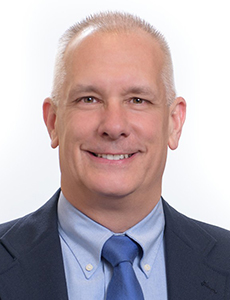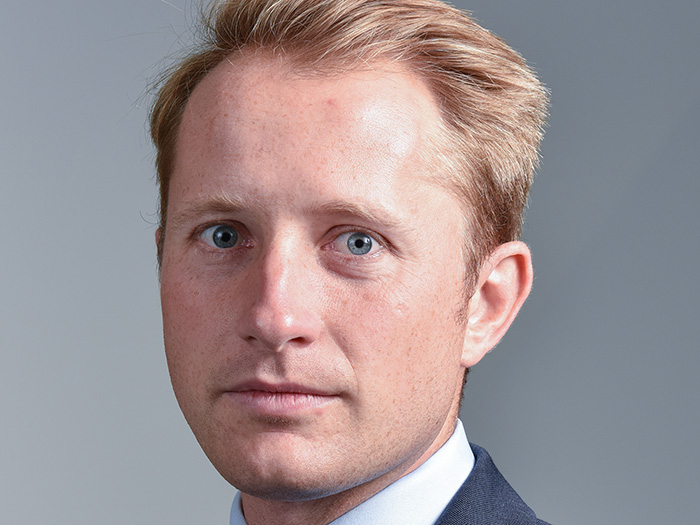Sponsored Content: Optum Auto No-Fault
How PBM Pharmacy Cost Savings Programs Can Help Auto Insurers Attract Policyholders

For years, auto insurance companies have struggled to manage increasingly frequent and severe claims, causing yearly premium increases to become the norm.
Multiple factors have led the cost of an individual loss to rise in recent years, putting strain on auto lines. Accident frequency and severity are on the rise and the cost of repairs is increasing due to supply chain issues and the fact that vehicles are becoming more technologically sophisticated, per a report from the Insurance Information Institute. As loss ratios grow, carriers are increasing premiums.
Yet some still see a glimmer of hope — and a major business opportunity. Despite the challenges of claims frequency and severity, there are still a high number of carriers with profitable auto books.
“Companies are really getting savvy about where they can lower their expenses,” said AJ Carrier, vice president of account management for the Auto No-Fault division of Optum Workers’ Comp and Auto No-Fault. “There’s no question: in every state, there are carriers that are making money.”
In fact, Carrier believes that if an insurer exits the auto market in a particular state, it’s because of poor underwriting and cost savings practices. “They’re not pricing their premiums properly, and they’re not utilizing cost savings programs.”
For carriers with profitable auto books, maintaining a solid base of policyholders is vital to continued success. If insurers can keep claims costs down by managing pharmacy spend, they can pass some of those savings down to insureds through lower premiums, allowing them to remain competitive.
How Pharmacy Cost Savings Programs Can Benefit Carriers and Policyholders

A.J. Carrier, Vice President of Account Management, Auto No-Fault division, Optum Workers’ Comp and Auto No-Fault
Auto carriers looking to increase their profitability and combat rising claims costs should scrutinize their pharmacy spend. Without a proactive pharmacy benefits management (PBM) program, carriers might be paying for brand-name medications when generic substitutions are available, or paying for drugs that aren’t related to a claimant’s injuries from a car accident.
All too often in the auto sector, adjusters review pharmacy spend retroactively, reducing the number of opportunities they have to suggest cheaper generic alternatives or scrutinize whether medications are appropriate.
“The important thing is to get ahead of the claim, because eligibility is everything,” Carrier said.
“With many of the cost savings programs, you want to make sure — before you’re providing any type of treatment — that it’s actually associated with the injury that happened in the accident.”
Working with a PBM can help insurers flag whether a medication should be covered by auto, group health, or workers’ compensation benefits. Injury-based formularies can support cost savings, improve turnaround, and reduce adjuster workload by automatically approving medications that are appropriate for patients who have experienced an auto accident and suggesting generic substitutions that can help save money.
“It’s really important that, when a new prescription comes in, the pharmacist attaches it to the right claim — whether it’s a group health, workers’ compensation, or auto claim,” Carrier said. “We’re not allowing a sinus medication to get filled through the auto program. We’re going to block that up front.”
Reducing the pharmaceutical spend on individual claims adds up to large savings for carriers — which they can then pass on to their clients. If carriers are able to lower their premiums thanks to pharmacy cost savings, they’ll attract a greater number of potential policyholders.
“These types of programs are going to save you money and can affect how you set your policy rates from underwriting,” Carrier said.
Why Partnering With a PBM Creates a Better All-Around Claims Experience
Adjusters may be apprehensive of PBM programs that help implement pharmacy savings at first, believing that the review process will add more to their already-hefty workloads. “Adjusters are very busy people. They’re overworked,” Carrier said. “When you bring in a new program like this, the first thing the adjuster thinks of is, ‘Ah, this is more work.’ But that’s not true.”
A PBM should only notify adjusters if a particular pharmaceutical isn’t on the formulary. In those cases, it’ll flag the medication so a claims professional can immediately decide if the drug is appropriate or suggest generic substitutions that can cut costs, saving the company money. This system reduces the strain on adjusters by allowing them to review requests up front, rather than after the prescription was filled, to determine if it’s eligible for reimbursement.
In addition to reducing adjuster workload, these programs can help injured claimants receive coverage for their medications more quickly, often at the point of sale, so they don’t have to worry whether or not a particular prescription is covered. As more and more payers prioritize caring for injured claimants, these services can help carriers attract insureds by making the claims management process as smooth as possible for everyone involved.
“One of the things the auto payers don’t want is to disrupt a claimant getting any drugs that are necessary,” Carrier said. “It’s a program that allows them to go into a pharmacy and get their drugs with no out-of-pocket expense and no hassle.”
Some auto carriers may be concerned that these types of programs are managing care, which is prohibited in all states except New Jersey, but Carrier clarified that this is not the case.
“The adjuster being involved in these types of programs is not managing care,” Carrier said. “These are voluntary programs and they ensure that the policyholders or anybody injured understands that they have this benefit available to them.”
Working With PBMs to Implement Cost Savings Programs
Partnering with a PBM can help carriers increase their profitability in the auto space, reduce workloads for adjusters and pass savings on to the policyholder. Optum’s vast network of pharmaceutical providers and experience in the auto space both contribute to making the company a valuable component of their clients’ business strategies.
“We give them all the tools they need to make the appropriate decision on whether or not the medication should be allowed,” Carrier said. “Our network is so vast that the majority of pharmacies that people go to are included in our network.”
Optum’s extensive experience dealing with workers’ compensation formularies has made the company well-equipped to partner with auto clients looking for PBM support. The company regularly updates its formularies as new medications become FDA-approved, and it remains abreast of shifting regulations — an important differentiator for the auto space, where laws differ greatly by state.
“Auto is like workers’ compensation, just with different, tighter regulations in the different states,” Carrier said. Optum has leveraged our Work Comp experience and developed a proven specific Auto Formulary. “As new drugs come onto the marketplace, we’re constantly evaluating … and refining our formularies by adding the ones that are appropriate.”
Optum offers its clients a network of support. Adjusters can contact Optum’s call center, use its online chat, or leverage its Ask-a-Pharmacist program if they have questions about whether a particular drug is necessary for treatment.
“They can chat with a pharmacist in real time,” Carrier said. “There’s no waiting. They can have an active conversation while an injured claimant is sitting at the pharmacy waiting.”
A quality PBM partner will enable carriers to reduce pharmacy costs for their auto claims, and over time insurers can pass those savings on to policyholders with reduced premium costs. Pharmacists, too, benefit from these programs because they are able to let injured claimants know their medications will be covered up front without having to pay out-of-pocket and wait for a decision from an adjuster.
“It’s great for the insurance carrier, because they’re saving money. They’re paying for these drugs at a much reduced rate. They’re not paying for drugs they shouldn’t be paying for,” Carrier said. “All three parties — pharmacies, carriers, and claimants — are winning.”
To learn more, visit: https://workcompauto.optum.com/.
This article was produced by the R&I Brand Studio, a unit of the advertising department of Risk & Insurance, in collaboration with Optum Auto No-Fault. The editorial staff of Risk & Insurance had no role in its preparation.










